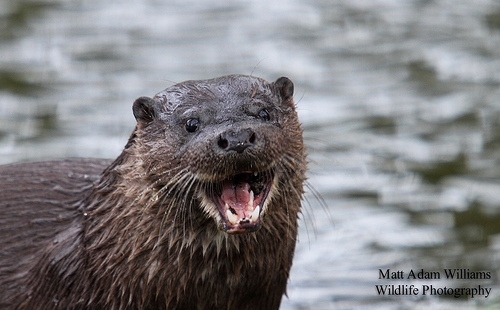A threatened species commissioner for the UK?
Australia has just announced that it will be creating the post of Commissioner for Threatened Species to ensure that those animals and plants on the brink of disappearing are saved.
This is an interesting idea, and could serve to prevent the loss of species that are under severe threat.
I think this would be a good thing to have in the UK, as long as it didn’t draw resources away from existing nature conservation.
Eurasian otter, a species that has recovered in the UK in recent years thanks to water quality improvements
As an island, we aren’t home to many endemic species. But our overseas territories are home to plenty, and many species are at risk of going extinct in the UK, even if not internationally.
Between one and two per cent of UK species have gone extinct, an unacceptable level. Luckily most of these have populations elsewhere, so their UK extinction hasn’t led to global extinction.
What would a Threatened Species Commissioner in the UK look like? What should she begin by focusing on saving? With the State of Nature (all statistics drawn from here) report showing that 60% of species surveyed are declining, there is an embarrassment of riches for our hypothetical Commissioner to get their teeth into.
Maybe the UK’s Overseas Territories should be the priority, with over 90% of species there at risk of global extinction. The Overseas Territories have 16 times more endemic species than the UK itself, and data on them are in short supply compared to the species we have in the UK itself.
One of my top picks for her first job in office would be the hen harrier. Perhaps not a politically simple one to solve, but we know what needs to be done. This isn’t a complex ecosystem problem – it’s mostly a simple question of rampant persecution.
Or perhaps it should be flowers like the corn cleaver which have suffered dramatic declines like the corn cleaver; or maybe farmland birds like grey partridges, turtle doves or corn buntings; or the Scottish wildcat, one of the world’s most endangered mammals.
In decades to come don’t want to have to travel abroad in order to hear purring turtle doves or cuckoos calling.
Species already receiving help might need more, and some species might have fallen between the gaps of different conservation groups’ efforts. But some species might already be receiving all the help they need. The Commissioner’s job would be to prioritise and assess where extra effort were needed.
Looking at these species might also force Government to tackle some wider environmental issues, at the root of these species’ decline – from inefficient farming subsidies, to climate change and consumption, to declining public connection nature, particularly among children. This would probably be the best outcome. Under the coalition, I find this an unlikely prospect as nature seems to slip further down the list of priorities and more and more anti-environment policies emerge, but we can live in hope.

